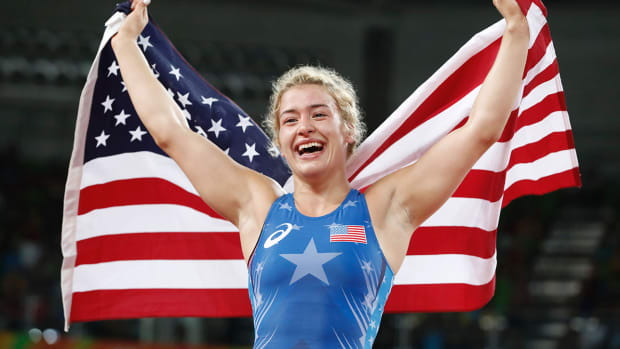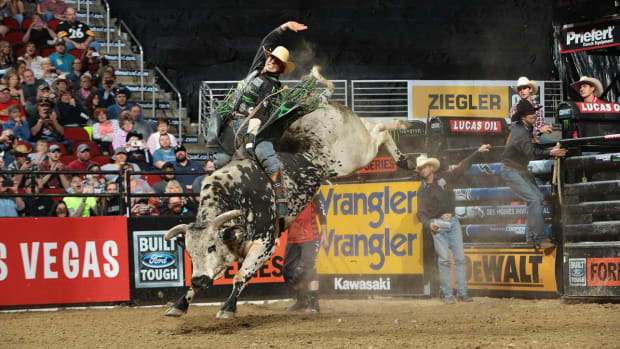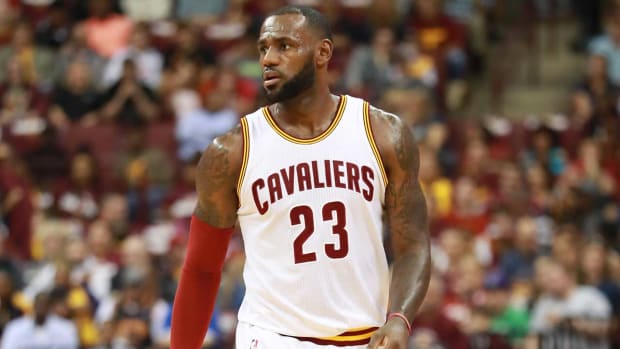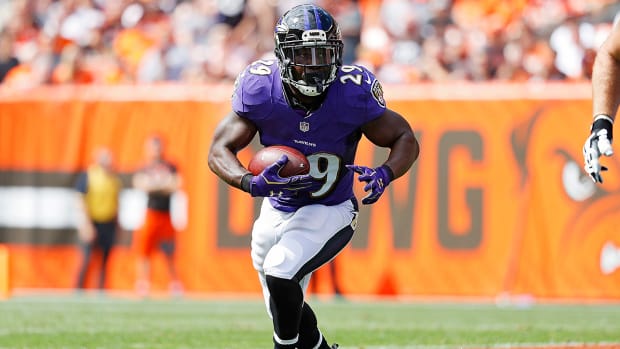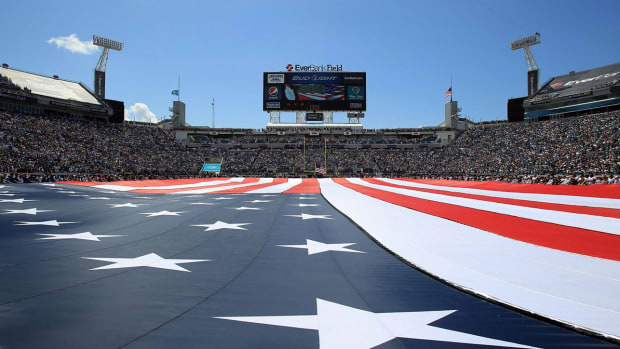I stand with Colin Kaepernick: We won’t — we can’t — just ‘Stick To Sports’
This past July, when I wrote for Sports Illustrated’s The MMQB.com, I had no way of knowing what was to come a few weeks later. While many of us — sports figures and ordinary people across the country — were ready, willing and able to speak out against injustice, Colin Kaepernick was compelled to do something else entirely.
In sitting down during the national anthem (and later kneeling), he has helped to spark a movement; a movement that I intend to further; a movement which has been a long time coming; a movement that will only end when, collectively, we start to listen to one another and empathize with those who we assume that we share little in common.
No matter what you think of Kaepernick’s actions — or mine, or the scores of other professional and amateur athletes protesting on sidelines — it is impossible to deny that a conversation is now taking place. And while reasonable people can disagree over whether Kaepernick’s method of protest is “appropriate” or “acceptable,” unless you’re intimately familiar with his reality — or mine, or the millions of African-Americans who experience a very different version of America than many of you do — judging him or anyone else for exercising their constitutional rights is as counterproductive as it is misguided.
Admittedly, I do get why people are upset about the protests; they see them as signs of disrespect to our nation, to our servicemen and women, to our law enforcement personnel. That viewpoint, though, only underscores the underlying problem: Understanding. (Or, more accurately, a lack thereof.)
Take, for example, my locker room. The Houston Texans are comprised of a diverse group of players. Naturally, there are those on the team who support the protests, and those who oppose it. From where I sit, however, there seems to be a very clear difference between the two sides: Experience. Not everyone has been made to feel as though they are lesser, simply because of the color of their skin, and that difference in experience can shade your perspective.
Those who have never faced overwhelming and widespread institutional racism can hardly be blamed for an inability to empathize with those who have, but without empathy, there can be no understanding.
Unfortunately, when we as people disagree, we almost always do not understand, and we tend to retreat further. Our ability to hear one another becomes suppressed by our firmly engrained prejudices. We see it all around us — the vitriol surrounding the upcoming Presidential election being the most obvious example. Simply put, our polarization is as prevalent as it is because we refuse to talk to one another about our differences in opinion.
The time has come for that to change.
I was born and raised in Richmond, Va. Growing up, I experienced forms of racism, but when I arrived in Houston after being selected in the first round of the 2008 NFL draft, I began to understand that the problem isn’t only confined to the “Old South.”
Like so many other young black men, I was pulled over in a routine traffic stop that ended up as anything but routine. I hadn’t committed any crime, but that didn’t stop the officer from treating me like a criminal. What was I doing? Why was I driving a rented car with an out-of-state license? I wanted so desperately to defuse what he had made into a confrontational situation that I tried pulling up a recent article on my phone to prove I was a member of the Texans. He still didn’t believe me, instead opting to make me sit on a curb for upwards of 45 minutes in intense heat so he could exercise his power over me.
The entire experience made me feel incredibly angry and frustrated, but even worse, it made me question the legitimacy of law enforcement; something to this day I remain reticent to do on account of the countless public servants who put their lives on the line every single day to uphold the oaths they have sworn to.
Still, if someone like me could be treated like that — simply because of the way I looked — other innocent people surely endure much, much worse.
Back then, my son was just an infant, blissfully unaware of the perils he likely will face someday on account of his skin color. He’s eight years old, and my daughter is 12, but despite the tremendous advantages they’ll have in life that I never did, they may never be able to avoid the inescapable truth that, for some people, their lives aren’t worth as much.
I don’t want to rob my son of his innocence. I want him to enjoy his childhood, and I want to shield him from the ugly truths, but there will come a time in the not-so-distant future when I will be compelled to sit him down and explain that there is a different set of rules for him. As much as it will pain me to do so, I will educate him about the reality of the world he lives in.
Until that day comes, though, I will use my platform as an NFL player to do my part to make a difference. I raised my fist to make sure the dialogue bravely started by Colin Kaepernick continues to be held in Houston and beyond.
To that end, I have already initiated meetings with Houston mayor Sylvester Turner, Interim Chief of Police Martha Montalvo, Harris County District Attorney Devon Anderson, Harris County Sheriff Ron Hickman, military veterans, and others to discuss how we can bridge the gap between law enforcement and the local black community.
I want to understand the challenges they face. I want to know how they feel about the current state of affairs. I want to listen to them so that my perspective is more well-rounded. And I hope that by listening to me, they will gain a greater understanding of the needs and expectations of their constituents. These meetings won’t solve our problems, but they can be a stepping stone and an example of progress that hopefully will inspire others as we move forward on a path toward equality and justice.
Yes, I know that raising my fist in protest is going to garner negative reaction in some circles. It already has.
People who feel this way — and feel it’s OK to flex their social media muscles — only confirm my fears. Not a fear of reprisal for publicly taking a stand against injustice, but a fear that those who spread hate and intolerance exist in greater numbers than we care to acknowledge. That scares me, and it should scare all of us.
Ironically, I chose to raise my fist during the national anthem (and not kneel) because I think it is important to honor our active military members and veterans. These are the valiant, often heroic citizens who put their lives on the line to protect our country and our freedoms. These are the people who, along with their families, make the ultimate sacrifice, and they deserve our respect.
But those who fight to preserve, and in many cases establish, equal rights for all — no matter their race, color or creed — deserve respect, too. And if Kaepernick (or anyone else) feels that kneeling is the best way to convey that sentiment, then that is perfectly fine with me.
Many people think athletes should “stick to sports.” They think that we exist solely to entertain them; that we have no right to express ourselves when it comes to issues that matter off the field. Typically, these are the same people who, at best, don’t see anything wrong with our society, and often also harbor racist views. I can’t worry about them. They aren’t ready to hear me or hear Colin or hear the countless citizens that care about the future of our country.
Instead, I am going to continue to further the conversation with those who are willing to gain a better understanding of what plagues us; those who may hold opinions and views that are antithetical to my own, but are open to a dialogue because they, like me, want their children to grow up in a better world. To those people, I say, welcome. Let’s talk. Let’s listen. Let’s learn about each other, and where we are coming from.
I am ready to make a difference. Are you?
Duane Brown is a three-time Pro Bowl left tackle for the Houston Texans.



